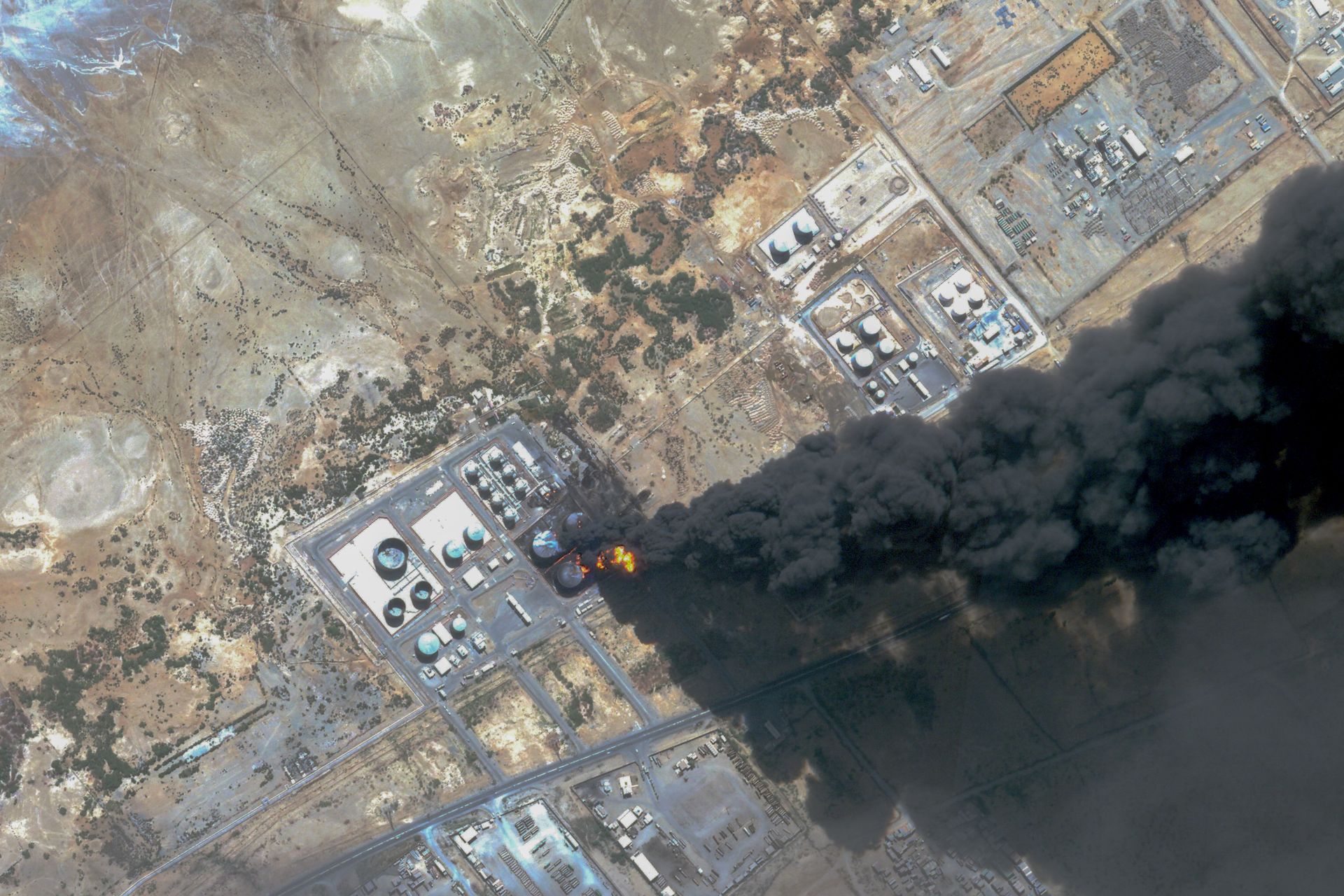- Home
- Middle East
- Drone Attacks Target Khartoum Airport for Second Day

Sudan’s Khartoum International Airport has been targeted by RSF drone attacks for two consecutive days, delaying the resumption of domestic flights. The conflict between the army and RSF continues to escalate, leaving much of the country in ruins and creating the world’s largest displacement and hunger crises. ©Planet Labs PBC / AFP
Paramilitary drone attacks targeted Khartoum International Airport for a second consecutive day on Wednesday, a Sudanese military source told AFP, as authorities attempted to reopen the facility for domestic flights for the first time in over two years.
The airport has been closed since April 2023, when fighting broke out between the Sudanese army and the paramilitary Rapid Support Forces (RSF).
The Civil Aviation Authority had announced plans to gradually resume domestic services starting Wednesday.
A Badr Airlines flight landed at the airport, according to an official statement, though it remains unclear whether the flight was commercial or carried any passengers.
On Tuesday morning, witnesses reported hearing explosions near the site while the army said its air defences intercepted RSF drones at dawn on Wednesday.
Army chief Abdel Fattah al-Burhan visited the airport Tuesday, vowing to "crush this rebellion" -- a reference to RSF leader Mohamed Hamdan Daglo.
In a speech posted online, Daglo claimed the RSF "attacks military positions only" and warned that any aircraft or drone entering Sudanese airspace -- whether to drop supplies or carry out airstrikes -- from neighbouring countries would be considered a "legitimate target".
He has previously accused Egypt of launching airstrikes in support of the army, a charge Cairo denies.
Stalemate
Despite repeated international efforts to broker a ceasefire, both sides have shown little willingness to compromise.
"We do not want any mercenary or militia to have a role in Sudan's future," Burhan said Tuesday, referring to the RSF.
Last month, Sudan's army-aligned government pushed back on a new peace proposal from the US, Saudi Arabia, Egypt and the UAE -- a group known as the Quad.
The Quad met in New York on the sidelines of the UN General Assembly, but talks yielded no clear progress.
The plan suggested excluding both the RSF and the current government from Sudan's post-war transition.
The UAE has long been accused of arming the RSF -- allegations it denies.
Earlier this week, Burhan dismissed calls for unconditional negotiations.
He ruled out any peace talks unless they would "end this war in a way that restores Sudan's dignity... and removes any possibility of another rebellion in the future".
Escalating violence
On the ground, violence has been escalating.
While Khartoum has seen a relative lull in ground clashes since the army regained control earlier this year, RSF drone strikes persist.
The government is gradually restoring services and relocating key institutions from Port Sudan back to the capital.
According to the UN's migration agency, over a million people have returned to Khartoum in the past ten months.
Much of the city, however, remains in ruins, with frequent blackouts blamed on RSF attacks.
The most intense fighting is now in western Sudan, where RSF forces have surrounded El-Fasher -- the last major city in Darfur not under their control.
If successful, the RSF would control all of Darfur and parts of the south while the army maintains its hold on central, eastern and northern Sudan.
The UN warned on Monday of escalating violence in North and West Darfur states as well as the Kordofan region and Blue Nile state in the south with drone strikes and ground clashes reported across the regions.
In Blue Nile state late on Tuesday, the army said its air defences intercepted drones that targeted power stations in the city of Roseires.
The broader conflict has killed tens of thousands, displaced nearly 12 million people, and created the world's largest displacement and hunger crises.
AFP
Comments